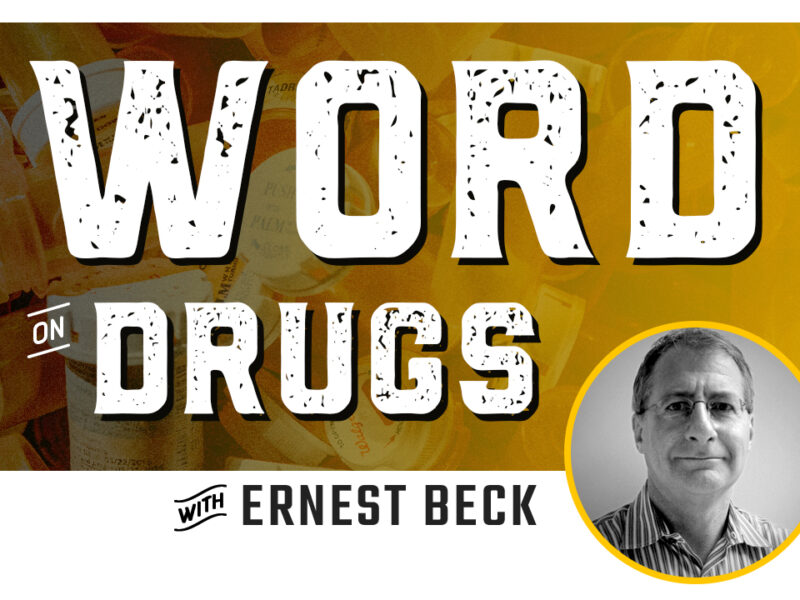The Word on Drugs: Opioid Settlement Could Net Wyoming Millions to Fight Addiction, Overdoses
Supreme Court set to rule on fate of Purdue Pharma case and its founding Sackler family
- Published In: Other News & Features
- Last Updated: Dec 21, 2023

By Ernest Beck
Special to the Wyoming Truth
Nearly a decade has passed since the first lawsuits were filed against Purdue Pharma, the drug manufacturer behind the prescription painkiller OxyContin that helped fuel the nationwide opioid epidemic. Since then, tens of thousands have died from opioid-related drug overdose, and lawsuits have proliferated against not only drug makers like Purdue, but also the opioid industry’s distributors and pharmacy chains.
Where does this complex, years-long legal struggle for justice and compensation stand now?
There has been considerable progress. Over 3,000 cases brought by local and state governments, federal authorities, individuals and Indigenous tribes against some two dozen defendants were resolved over the past two years in a $54 billion global settlement. Most of the money, to be paid over the next two decades, will go to governments and institutions that shouldered the burden of costs, and victims’ families and ongoing efforts to abate the drug crisis that is still with us today.
The final chapter of this tragic story is not yet over. The cases filed against Purdue, including a number of Wyoming counties, are now in the hands of the Supreme Court to resolve a last minute and highly controversial hitch. After declaring bankruptcy, Purdue offered $6 billion as its share of the overall settlement package—but only in exchange for shielding the wealthy Sackler family that founded and ran the company from all further liability and civil litigation.
While an overwhelming majority of plaintiffs—including Wyoming— have agreed to give Purdue and the Sacklers what critics describe as a free pass to avoid further litigation, other plaintiffs have said no, and with the support of the Justice Department have asked the Court to decide.
Jason Ochs, a Jackson Hole-based lawyer who represented five counties in Wyoming in the lawsuits, said victims’ families are being asked to balance their grief and anger with the fact that there is a “desperate need for money to abate the crisis.
“I have great empathy for the families and their ability to sue the Purdues of this world,” Ochs, who also represented counties in Nebraska, Kansas and Colorado, told me in an interview.
But he is also acutely aware that nothing can replace a loved one. “Money is not enough—it’s never enough,” he emphasized. At the same time, however, knowing that many communities in Wyoming have huge drug problems and are “starved for money,” he has recommended that his county clients accept the Purdue deal.
The good news is that while the Court deliberates — a decision is expected in June —funds are already in the pipeline from the other defendants who were part of the massive global settlement. These companies are a who’s who of corporate America, from Johnson & Johnson to Walmart and Walgreens, among others. Between 2006 and 2019, over 145 billion pills made their way from factory to distributor to pharmacy “pill mills,” first in rural America and eventually all across the country.
For its part, Wyoming will receive $52 million for state and individual municipalities to launch mitigation, drug treatment and education and emergency assistance programs for opioid abatement. There were 93 overdose deaths recorded in Wyoming in 2022, compared with 65 in 2018, according to the Wyoming Department of Health (WDH).
With money on the way to Wyoming and other states, it’s important to ask why the Purdue settlement is so important—and equally important, why letting the Sackler family off the hook rankles so many.
Although Purdue was not the biggest opioid maker, the company with Sackler family members at the helm became a symbol of industry greed, as later discovered in court documents, media investigations and books exploring the root causes of the opioid epidemic. These found that Purdue—known as the “kingpin of opioid makers”— misled consumers about the purported benefits of its bestselling OxyContin. The company used aggressive and deceptive marketing tactics to convince both doctors and patients that the medication was safe and effective when it knew the drug was addictive and killing thousands. All the while, the Sackler family reaped billions in profits and polished its image by becoming generous benefactors to major cultural institutions.
The Purdue case is also significant because it seeks $750 million for payments to individual victims and families of people who became addicted to OxyContin or died from overdose.
Nearly 140,000 plaintiffs filed personal injury claims against the company, and according to the terms of the suit, would receive between $3,500 and $48,000 in compensation. Guardians of about 6,500 children who experienced withdrawal symptoms from drug exposure in the womb would receive $7,000 each.
In addition, all 574 federally recognized Native American tribes, including those in Wyoming, would be eligible for payouts of about $161 million. Together, the lawsuit payouts could provide tribes and tribal health organizations over $1.5 billion.
It is unclear which way the Court is leaning. The justices appear to be weighing the impact of a decision on bankruptcy law, victims’ rights, and the need for more funding to combat the addiction and overdose epidemic, according to the New York Times.
And with good reason: drug overdoses have killed over one million people in the U.S. since 1999, and 110,000 died last year, a record likely to be duplicated in 2023.
It’s difficult to fathom the agony of survivors, many of whom have watched multiple family members succumb to addiction and death. Yet, at a time when so little is being done on the government level to combat the drug crisis and expand access to drug treatment, approving the Purdue agreement would be highly beneficial.
In my opinion, a moral and financial reckoning for the Sackler family is justified. But so, too, is winning billions of dollars to help those struggling with substance abuse.
Ernest Beck writes about drug policy. He is the former communications lead for the Rosenthal Center for Addiction Studies in New York.













